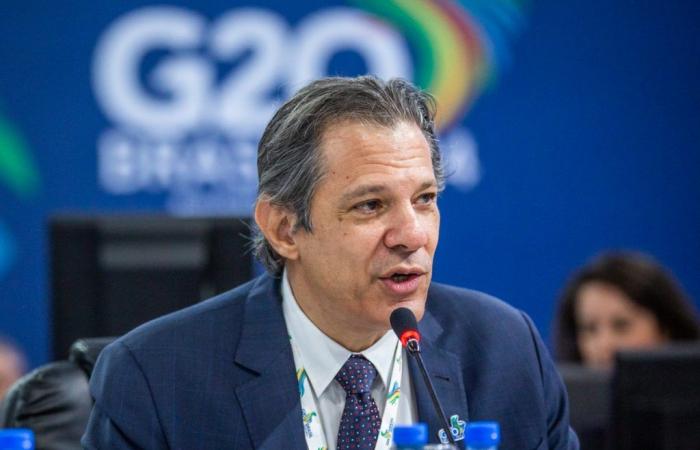At a G20 meeting in São Paulo chaired by Brazil, Fernando Haddad, Minister of Finance, raised the debate on a global taxation plan by stating that effective solutions for the super-rich to pay their fair contribution in taxes “depend on international contributions” .
“If we join forces […] we can continue to move forward and reduce opportunities so that a small number of billionaires do not continue to take advantage of holes in our tax system to avoid paying their fair contribution”, he stated.
But how successful can the proposal put on the table by Haddad be?
For André Roncaglia, professor of economics at Unifesp, “the possibility of taxing the richest is a real possibility”. In an interview with the podcast O Assunto this Friday (1st), he considers that “the question is knowing how international politics will process this in a coordinated way.”
“I think it has every possibility of prospering, depending on the degree of cooperation that countries invest in it. […] I want to emphasize that this process of ‘let’s try to surround the wealth of the richest, of large corporations’ has been going on for 10 years, at least, and has been happening in the form of greater banking transparency on the part of tax havens.”
“So, this automatic exchange of information, which has been working for around 10 years, allows us to understand where the wealth goes, how large corporations manipulate the tax systems to pay less taxes on profits.”
Since last year, the minister had already been defending the internal taxation of exclusive funds — also known as funds for the “super-rich” — and offshore companies. One of the criticisms of the proposal, however, is that an increase in wealth taxation causes the super-rich to move their wealth to another country.
Roncaglia points out that it is “a fallacy from the point of view of empirical studies”.
“In general, the wealth that escapes is associated with a tax on large fortunes and even so the ability to escape is very limited for a reason that is associated with the fact that half of the wealth, in general in Brazil, we get the data, is immobile.”
“So, she cannot leave the country. It is more difficult for this to happen and, if the property is sold, you are simply changing ownership, but it is not the wealth itself, it is remaining there.
According to the professor, the biggest problem is mobile wealth. “Which are the financial assets. These, in fact, they can leave.”
Does taxing the super-rich make wealth circulate?
Taxation of the super-rich around the world
What do you need to know:
The podcast O Assunto is produced by: Mônica Mariotti, Amanda Polato, Carol Lorencetti, Gabriel de Campos, Luiz Felipe Silva, Thiago Kaczuroski and Sarah Resende. Today at the presentation: Julia Duailibi.
SEE PODCAST CUTTINGS THE TOPIC ON VIDEO
Tags: Global tax super rich Haddads G20 proposal work subject
--





